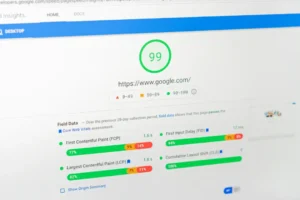
Introduction to Content Marketing
Marketing Growth: Content marketing is a strategic approach focused on creating and distributing valuable, relevant, and consistent content to attract and engage a clearly defined audience. In today’s digital landscape, this practice has become increasingly essential for businesses seeking sustainable growth. The primary aim of content marketing is not only to drive profitable customer action but also to build a strong brand presence and foster lasting relationships with the audience.
At its core, content marketing revolves around understanding the needs and interests of potential customers and delivering content that addresses those requirements. By providing informative and engaging material, businesses can effectively position themselves as authoritative voices within their industry. This not only enhances their visibility but also aids in establishing trust, which is a crucial component for customer loyalty.
The importance of content marketing cannot be overstated, as it plays a pivotal role in attracting, engaging, and retaining customers. In an era where consumers are bombarded with endless information, a well-thought-out content marketing strategy differentiates a business from its competitors. It allows companies to convey their values, showcase their expertise, and demonstrate the solutions they offer, all while guiding potential customers through the buyer’s journey.
Moreover, content marketing provides numerous benefits that extend beyond short-term sales. It can improve search engine rankings, enhance social media engagement, and cultivate a community around a brand. By consistently delivering high-quality content, businesses can generate leads, nurture prospects, and convert them into loyal customers. The sustainable growth that content marketing fosters not only contributes to an organization’s bottom line but also reinforces its reputation in an ever-evolving marketplace.
Understanding the Core Principles of Content Marketing
Content marketing has become an essential component of contemporary business strategies, focusing on creating valuable content to engage and inform target audiences. The fundamental principles of content marketing serve as the backbone of effective campaigns, shaping the direction and execution of marketing efforts. A holistic approach to content marketing necessitates a thorough understanding of these core principles.
First and foremost, audience understanding is critical. Identifying and analyzing the target audience helps marketers tailor content to meet their specific needs and preferences. Through audience segmentation, businesses can create detailed buyer personas that capture essential demographic and psychographic information. This targeted approach allows for content that resonates with audiences, driving engagement and fostering loyalty.
Value creation is another central principle that underscores the essence of content marketing. Providing valuable, relevant, and informative content establishes trust and positions the brand as an authority in its field. Whether through blog posts, videos, or social media updates, the focus should always be on delivering content that offers real benefits to the audience, addressing their pain points or enriching their knowledge.
Consistency in content production is vital for maintaining audience engagement and building brand recognition. A well-planned editorial calendar can help ensure that content is published regularly, establishing a presence in the minds of consumers. This repeated exposure reinforces brand messaging and keeps the audience informed of new developments or offerings.
Lastly, setting measurable goals is essential to the success of any content marketing strategy. By defining clear, quantifiable objectives, businesses can gauge the effectiveness of their content initiatives. This feedback loop enables continuous improvement and optimization of strategies, ensuring that the approach remains aligned with evolving audience needs and market trends. These principles work synergistically, forming a robust framework for sustainable growth through effective content marketing.
Identifying Your Target Audience
Understanding your target audience is a fundamental principle of effective content marketing. Proper identification and segmentation of your audience not only enhances engagement but also aligns your messaging with their needs. The first step in this process is conducting thorough audience research. Techniques such as surveys, interviews, and focus groups can provide valuable insights into customer preferences, behaviors, and pain points. Online analytics tools can further enable businesses to track user interactions, helping to inform a more comprehensive audience profile.
Creating buyer personas is another essential technique in identifying your target audience. A buyer persona is a semi-fictional representation of your ideal customer based on real data and market research. It encompasses demographic information, purchasing behavior, motivations, and challenges faced by the potential customer. This detailed characterization helps tailor your content to resonate with specific segments effectively. By visualizing who your audience is, organizations can better craft messages that speak directly to their needs, fostering deeper connections.
Gathering insights into customer preferences is crucial for continuous alignment with your audience’s dynamics. Regularly reviewing analytics, social media interactions, and feedback can help identify trends and shifts in the audience’s preferences. Additionally, utilizing social media listening tools can provide real-time insights into consumer sentiments and topics that resonate with them. This proactive approach establishes a feedback loop that allows marketers to adapt their strategies based on audience responses.
Ultimately, the importance of audience alignment in content creation cannot be overstated. Creating relevant and resonant content hinges upon a deep understanding of who your audience is and what they seek. As content marketers endeavor to provide value, prioritizing audience insight is imperative for sustainable growth and enhanced engagement.
Creating Valuable Content
Valuable content is the cornerstone of effective content marketing, and its significance cannot be overstated. Various forms of content, including blog posts, videos, and infographics, play essential roles in engaging an audience and conveying information effectively. To determine what qualifies as valuable, one must understand the specific needs and preferences of the target audience. Each type of content serves distinct purposes; for instance, blog posts are excellent for providing in-depth insights and exploring complex topics, while videos can simplify concepts and add visual appeal. Infographics are particularly effective in presenting data in a digestible format, combining visuals and text to enhance understanding.
To create content that resonates, it is imperative to focus on quality, originality, and relevance. Quality content not only captivates the audience but also positions the brand as an authority in its niche. This is achieved by ensuring that information is accurate, well-researched, and presented in an engaging manner. Originality is another crucial factor in content creation; unique perspectives or novel approaches to familiar topics can distinguish your content from the competition. Employing various content formats and using innovative storytelling techniques can help to maintain originality while appealing to diverse audience preferences.
Relevance is equally vital, as content must be aligned with the audience’s interests and pain points. Conducting thorough audience research, including surveys and analysis of online behavior, can inform content strategy and help identify what is genuinely valuable to your readers. Regularly updating content to reflect current trends, developments, and user feedback ensures sustained relevance and engagement. In summary, creating valuable content requires a thoughtful approach that prioritizes quality, originality, and relevance, ultimately leading to a more successful content marketing strategy.
Establishing Brand Authority Through Content
In an increasingly competitive digital landscape, establishing brand authority is critical for businesses seeking sustainable growth. Content marketing serves as a powerful tool to enhance credibility by showcasing expertise, engaging audiences, and building trust among potential customers. By consistently providing valuable content, brands can position themselves as thought leaders in their respective industries.
One effective strategy for building brand authority is the development of informative and relevant content that addresses the needs and interests of the target audience. This could include blogs, whitepapers, or case studies that not only demonstrate the brand’s knowledge but also provide actionable insights. Creating content that resolves specific issues faced by the audience signals to consumers that the brand understands their challenges and has the competence to offer solutions.
Furthermore, storytelling plays a pivotal role in establishing a personal connection with the audience. By sharing compelling narratives that resonate on an emotional level, brands can create a more profound engagement with their audience. This approach not only enhances the memorability of the brand but also fosters a community of loyal customers who feel connected to the brand’s mission and vision.
Incorporating expert opinions and customer testimonials within content marketing efforts can also reinforce authority. Collaborating with industry experts to create co-branded content or sourcing testimonials from satisfied customers can enhance credibility. These strategies contribute to the brand’s perception as a trusted authority, thereby increasing customer loyalty and long-term engagement.
Ultimately, businesses that prioritize content marketing and focus on delivering quality, relevant content will find themselves well-positioned to establish robust brand authority. This authority not only enhances credibility but also cultivates lasting relationships with customers, driving sustainable growth in the long run.
Driving Customer Conversions with Effective Content
Content marketing plays a pivotal role in influencing customer behavior and driving conversions. In an era where customers are bombarded with information, utilizing effective content strategies can significantly enhance engagement and spur action. At the heart of these strategies lies the concept of compelling calls-to-action (CTAs). A well-crafted CTA serves as a crucial prompt for potential customers, guiding them towards the next step in their buying journey. Whether encouraging sign-ups, product purchases, or content downloads, a strong CTA is essential for translating interest into tangible conversions.
Moreover, nurturing leads with targeted content is equally vital. By understanding the various stages of the customer journey, marketers can create tailored content that meets specific needs and addresses relevant pain points. For prospective customers in the awareness stage, informative blog posts or videos can provide valuable insights, while those in the consideration stage may benefit from case studies or product comparisons. Such targeted content not only fosters trust and credibility but also keeps the audience engaged, gradually leading them closer to making a purchase decision.
Additionally, optimizing content for the customer journey is imperative for maximizing conversion rates. This involves understanding the preferences, behaviors, and key decision-making factors of the target audience. By employing data analytics and customer feedback, marketers can refine their content strategies, ensuring that the right information reaches customers at the right time. Through continuous optimization, marketers can enhance the overall effectiveness of their content marketing efforts, ultimately driving higher conversion rates. In conclusion, effective content marketing directly influences customer behavior, highlighting the importance of tailored strategies, compelling CTAs, and optimization for the customer journey to drive sustainable growth and conversions.
Measuring Content Marketing Success
Measuring the success of content marketing is crucial for understanding its effectiveness and ensuring sustainable growth. By evaluating specific key performance indicators (KPIs), businesses can determine how well their content resonates with the target audience and drives desired outcomes. Common KPIs include website traffic, engagement rates, conversion rates, and social media shares. Each of these indicators provides valuable insights into user behaviors and preferences, which can be leveraged to refine content strategies.
To accurately track these KPIs, various analytics tools are available that can aid in gathering and interpreting data. Google Analytics is one of the most widely used platforms, offering in-depth insights into user behavior on websites. It allows marketers to monitor traffic sources, user demographics, and how visitors interact with content. Other tools, such as HubSpot and SEMrush, can provide additional capabilities, including tracking lead generation and search engine optimization performance. By employing these solutions, businesses can obtain a comprehensive view of their content marketing effectiveness.
Once data has been collected, the next step is interpreting it to assess content performance. This involves not only reviewing the numbers but understanding the context behind them. For example, a high bounce rate might indicate that visitors are not finding the content engaging enough or relevant to their needs. Conversely, a low conversion rate despite high traffic could suggest that while the content attracts visitors, it fails to compel them to take action. Therefore, content marketers must analyze these metrics holistically to draw actionable insights.
Ultimately, making data-driven decisions based on these analyses informs future content strategies, allowing marketers to optimize their approach and achieve better results. The continuous process of measuring content marketing success and adjusting tactics accordingly is fundamental for organizations aiming to thrive in a competitive digital landscape.
Building Customer Loyalty Through Ongoing Engagement
Customer loyalty is an essential component of successful content marketing, and ongoing engagement plays a vital role in cultivating enduring relationships. By consistently interacting with customers through various channels, brands can foster a sense of connection, which ultimately leads to repeat business. One effective strategy is the use of newsletters, which serve as a regular touchpoint to share valuable content, updates, and promotions. By curating personalized information that resonates with subscriber interests, organizations can significantly enhance the perceived value of their communications.
In addition to newsletters, social media platforms are invaluable tools for maintaining engagement. Brands can leverage social media to create two-way conversations, allowing customers to share their thoughts and experiences. Engaging content, such as polls, videos, or user-generated content, encourages customers to participate and feel valued. This not only helps in creating a community around the brand but also positions it as approachable and responsive to its audience’s needs.
Another effective method for nurturing customer loyalty is the use of personalized content. By leveraging data analytics, companies can gain insights into customer preferences and behaviors. This information can be used to tailor content that speaks directly to individual needs. Personalized recommendations and targeted promotions can make customers feel appreciated, increasing the likelihood of their continued engagement and loyalty.
Moreover, brands should ensure their content is consistently high-quality and relevant. This reinforces the value customers derive from staying connected, ultimately enhancing their loyalty. Businesses that prioritize ongoing engagement through various channels—newsletters, social media, and personalized interactions—are well-positioned to build lasting customer relationships. As a result, this approach leads to sustainable growth and success in the competitive landscape of content marketing.
Implementing Your Content Marketing Strategy
Successful implementation of a content marketing strategy requires careful planning and structured execution. The first vital step is the creation of a comprehensive content calendar. This calendar acts as a roadmap, outlining when, what, and where content will be published. It helps ensure consistency in messaging and frequency of posts, which are crucial for maintaining audience engagement. When establishing your content calendar, consider seasonal trends, industry events, and your audience’s preferences to ensure that content aligns with their interests.
Once the content calendar is in place, collaboration with your team becomes essential. Effective teamwork can enhance creativity and ensure that diverse perspectives are considered during the content creation process. Utilize project management tools that promote transparency and allow team members to track progress in real time. Schedule regular meetings to review content plans, address any challenges, and share feedback. This collaborative spirit fosters a sense of ownership among team members and can lead to higher quality content that resonates with your target audience.
Continuous evaluation and refinement of your content marketing strategy are equally important. Utilize analytics tools to monitor content performance by assessing metrics such as website traffic, engagement rates, and conversion goals. Analyzing this data enables you to identify what works and what doesn’t, allowing you to adapt your strategy accordingly. Implement A/B testing where appropriate to optimize content and improve its effectiveness over time. Encourage feedback from your audience to gain insights into their needs and preferences, and adjust your content accordingly. By actively refining your strategy based on data and audience feedback, you position your business for sustained growth through content marketing.









